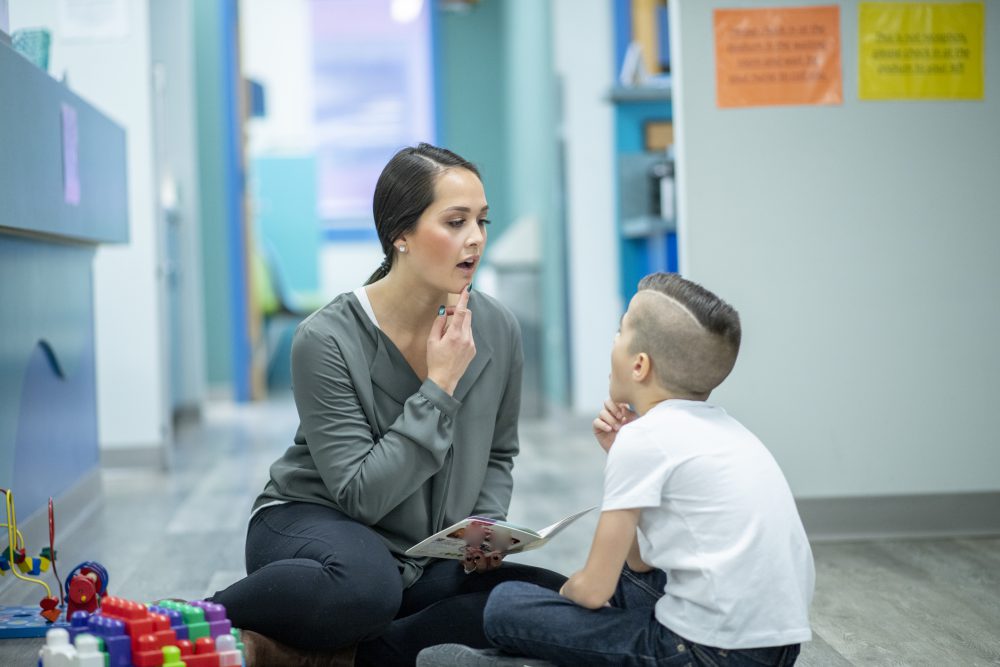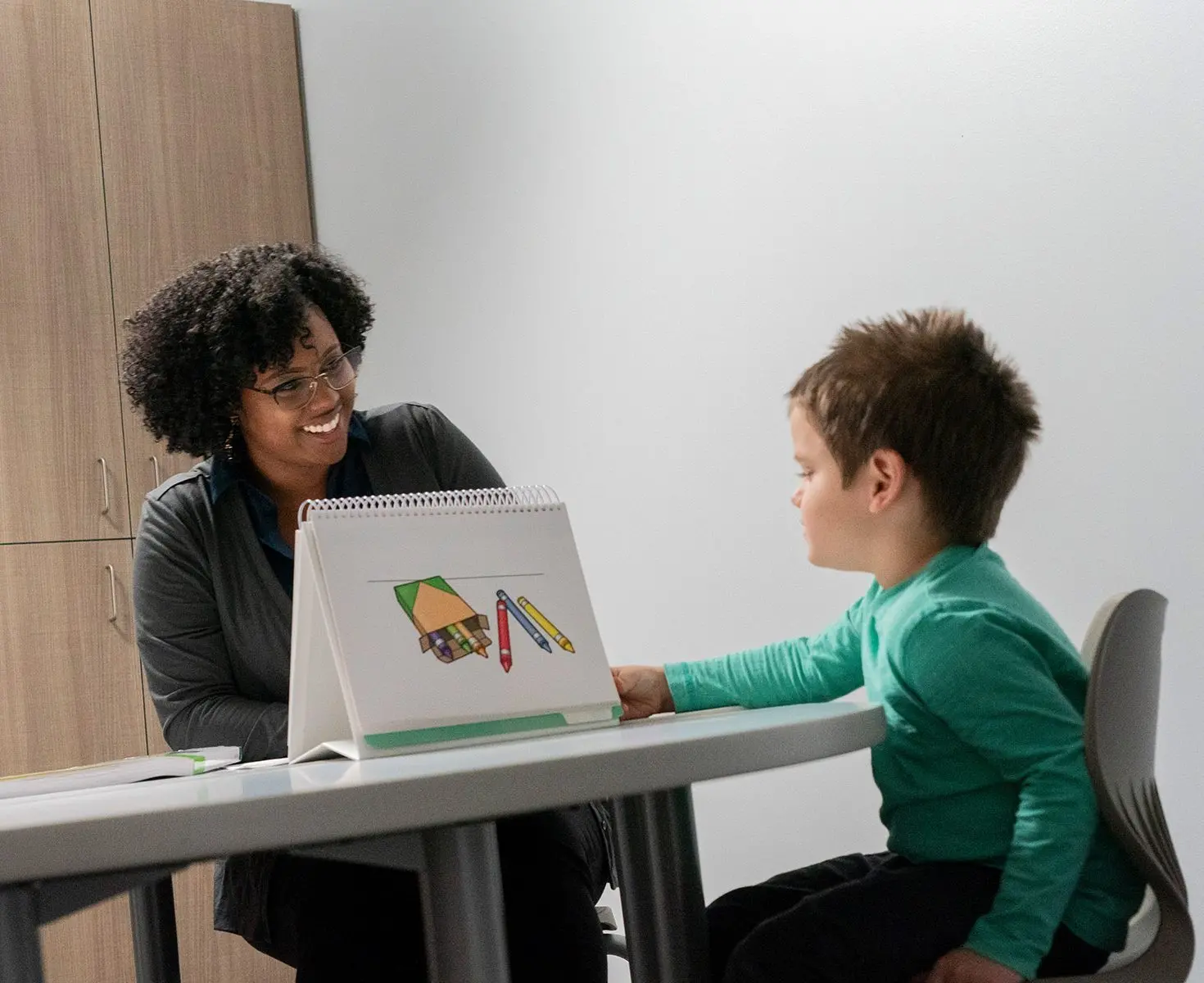Exactly How a Speech Pathologist Can Assist Improve Interaction Abilities
Efficient interaction is a foundation of expert and personal success, yet numerous individuals face challenges that hinder their ability to express themselves plainly. A speech pathologist is outfitted to resolve these obstacles with targeted evaluation and intervention techniques tailored to each person's demands. By using evidence-based healing methods, they not only work to improve speech and language problems yet likewise improve general communicative competence. Understanding the complex function of a speech pathologist exposes how their competence can transform lives, welcoming a more detailed exam of the certain techniques and results related to their technique.
Recognizing Communication Problems
Comprehending communication problems is necessary for recognizing exactly how they impact people' ability to share themselves and engage with others. Interaction disorders include a vast array of difficulties that influence speech, language, and social interaction, frequently impeding reliable communication. These conditions can emerge from various aspects, consisting of neurological conditions, developmental hold-ups, physical problems, or psychological problems.
Speech problems may materialize as difficulties in fluency, voice, or expression production, influencing how words are noticable or talked. Language problems, on the various other hand, involve difficulties in understanding or utilizing language, which can restrain both non-verbal and verbal communication. Social communication conditions are defined by troubles in the practical facets of communication, such as taking turns in conversation or understanding social cues.
The repercussions of communication conditions are extensive, influencing not just the person's capacity to share feelings and ideas yet additionally their social connections, academic chances, and general lifestyle. Recognition of these problems can promote compassion and support, motivating efficient techniques for communication and interaction. Understanding the complexities of communication disorders is a vital action in the direction of promoting inclusivity and attending to the requirements of those impacted.
Role of a Speech Pathologist
Speech pathologists frequently play a vital role in dealing with and identifying communication disorders, using a series of evidence-based methods tailored per person's requirements. These professionals collaborate with people across the lifespan, from children with speech hold-ups to adults recovering from strokes or traumatic mind injuries. Their expertise incorporates a range of communication issues, consisting of articulation, voice, language, and fluency conditions.
In therapeutic setups, speech pathologists use structured treatments developed to boost communication skills. They might execute approaches such as speech exercises, language video games, and social interaction training to facilitate renovations in receptive and meaningful language abilities. Speech Pathologist. Additionally, they enlighten clients and their family members regarding reliable interaction techniques and flexible techniques to navigate daily interactions
Beyond straight therapy, speech pathologists team up with other health care caregivers, educators, and professionals to make certain an extensive strategy to treatment. They advocate for clients by supplying sources and support, enabling individuals to accomplish their interaction objectives and improve their overall lifestyle. As professionals in the area, speech pathologists are essential in promoting efficient interaction, advertising freedom, and boosting social participation for those with communication challenges.
Assessment and Diagnosis Process
The evaluation and medical diagnosis procedure carried out by speech pathologists commonly entails a comprehensive evaluation to identify communication disorders accurately. This process begins with a detailed medical history, where explanation the clinician collects relevant information about the individual's clinical, instructional, and developing history. Comprehending the context of the person's communication problems is important for a precise diagnosis.
Following the medical history, speech pathologists make use of casual analyses and standard examinations to examine different elements of communication, including speech sound production, language understanding, meaningful language, and social interaction abilities. These evaluations are tailored to the individual's age and details problems, giving useful data for analysis.
Observation is additionally an essential element of the assessment procedure, as it enables the clinician to see direct exactly how the specific connects in natural setups. Furthermore, meetings with relative and instructors can provide understanding into the person's communication challenges throughout different settings.
When the evaluation is full, the speech pathologist synthesizes the searchings for to determine a medical diagnosis and recommend proper interventions. This complete assessment procedure guarantees that people receive targeted assistance tailored to their special communication requirements, laying the structure for effective healing strategies.
Healing Techniques and Methods
Countless healing techniques and methods are employed by speech pathologists to deal with a selection of interaction disorders efficiently. One extensively made use of method is articulation treatment, which concentrates on correcting speech sounds with repeating and visual hints. This method is specifically advantageous for individuals with speech audio conditions.
An additional effective strategy is language intervention, which improves both expressive and responsive language abilities. This might entail interactive tasks that advertise vocabulary growth, syntax understanding, and conversational abilities. In addition, speech pathologists often use social skills training to improve pragmatic language abilities, enabling individuals to browse social communications more successfully.
Fluency shaping and stuttering modification strategies are especially designed to aid those experiencing fluency problems. These strategies aid customers establish smoother speech patterns and handle the emotional and physical components of stuttering.
Furthermore, augmentative and alternate communication (AAC) systems are used for people with serious communication impairments. These systems, which can consist of motions, signs, or electronic tools, supply vital support for effective interaction.
Benefits of Speech Therapy

Additionally, speech therapy can assist in creating essential listening and understanding skills, promoting better interaction in discussions. People with cognitive-communication problems can likewise profit, as treatment concentrates on enhancing memory and problem-solving abilities, important for effective communication.
Another page critical aspect is the psychological assistance supplied during therapy sessions. Speech pathologists develop a risk-free environment, encouraging people to get rid of stress and anxiety and disappointment related to their interaction problems. This support can bring about enhanced self-esteem and total her explanation mental well-being.
In addition, early treatment through speech treatment can avoid further problems, ensuring that people reach their complete communicative capacity. On the whole, the benefits of speech treatment extend past plain speech enhancement, favorably impacting different measurements of life for those impacted by interaction difficulties.
Final Thought
In recap, speech pathologists play an important duty in resolving communication conditions with assessment, diagnosis, and customized therapeutic interventions. By employing evidence-based methods, these specialists enhance individuals' speech and language capacities, cultivating improved clearness, fluency, and social interaction skills. The benefits of early intervention underscore the value of seeking aid from speech pathologists, as their competence can dramatically improve communicative possibility, inevitably leading to higher success in both individual and specialist spheres.

Speech pathologists regularly play an important function in dealing with and detecting communication conditions, using a range of evidence-based methods customized to each person's needs. As professionals in the area, speech pathologists are crucial in fostering efficient interaction, advertising independence, and enhancing social involvement for those with interaction obstacles.
